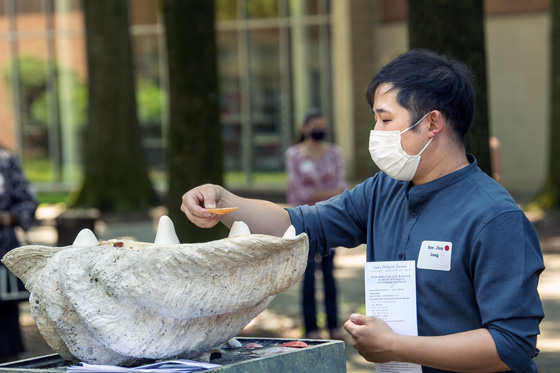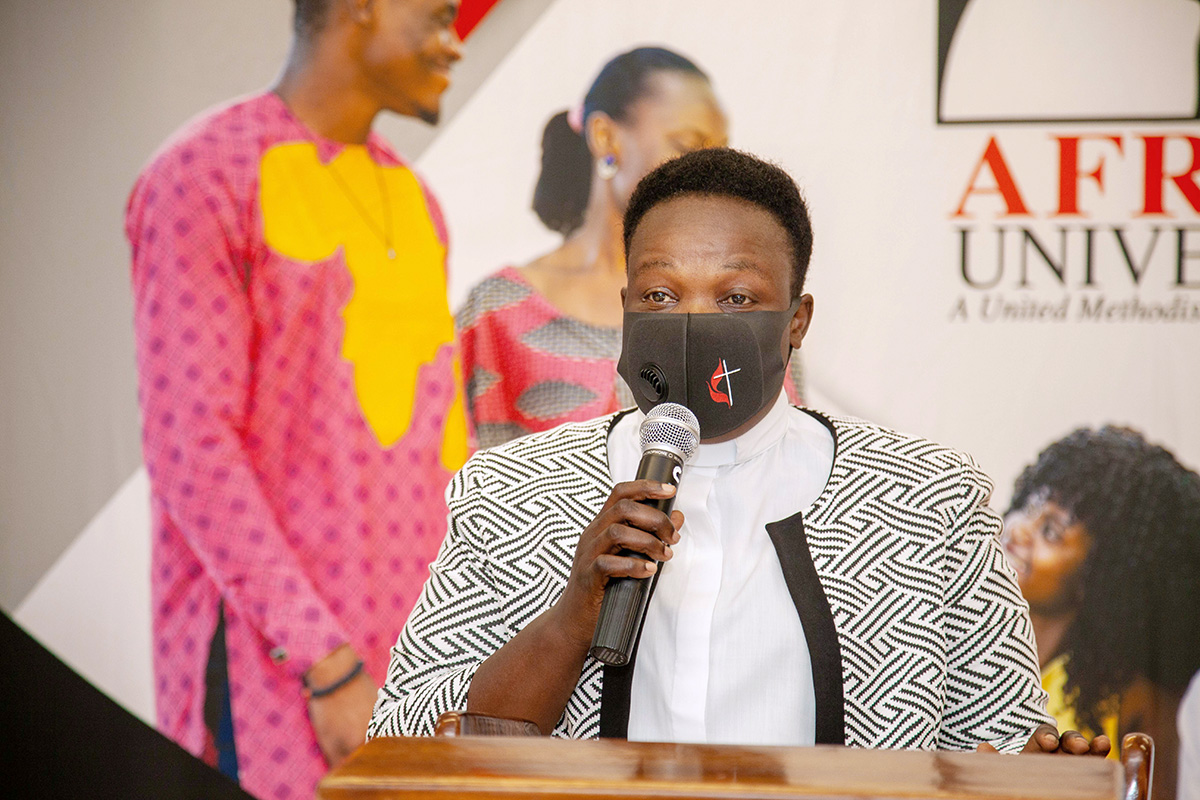Africa University students and staff know firsthand how COVID-19 can change lives overnight.
By summer 2021, more than 19 AU students and staff had lost loved ones to the pandemic. According to an April 2021 report by the U.S. Centers for Disease Control and other entities, COVID-19 has left more than 1.5 million children worldwide experiencing the death of a parent or a grandparent caregiver.
“The reported global increase on orphanhood has not spared Africa University, with 19 of our students having lost their parents or guardians,” said Dr. Peter Mageto. He is currently serving as the acting vice chancellor of the institution.
“One student lost both parents. The university has lost two members of staff,” he said. “Although these members had no children at Africa University, their dependents will always look at Africa University for hope.
Read more

Colleges, seminaries grapple with shot, mask mandates
“The loss of a parent or guardian is always of concern to us. Though the financial impact is difficult to quantify at this moment, the emotional toll on our students is evident,” Mageto said.
Death is only one part of the story. The economic impact is another as incomes have decreased or disappeared.
“Some breadwinners have lost their formal jobs,” Mageto said, “and those informally employed have very little income due to lockdown restrictions in place since March 2020. The economic environment remains uncertain, and continued loss of employment and incomes by our stakeholders and sponsors is something Africa University will have to live with going forward.”
Across Zimbabwe, the crisis has resulted in increased crime and reduced quality of life for many. Prices of food, utilities and the internet have gone up.
For Africa University students learning remotely, internet connection is expensive and sometimes unreliable because of electricity cuts. Adjusting to online learning is especially difficult for students coming straight from high school. Some cannot afford an ordinary phone, let alone a laptop. Studying at home while helping with chores adds another burden.
The change from what university life was before COVID-19 to the current situation is dramatic. Some international students on scholarships remain on campus because travel home is expensive. Living under strict lockdown restricts movement and social interaction.
To address orphanhood, economic distress and poverty, and access to university education, Africa University is taking immediate and long-term steps. In 2020, the university provided more than $300,000 in one-time financial aid grants to students, in addition to the already available direct and endowed scholarships.
As a second academic year under the "new normal" unfolds, the university's financial aid committee hopes to keep vulnerable students from giving up and dropping out.
The Department of Student Affairs conducts psychosocial programs to address issues affecting students. These include bereavement counseling, self-esteem/image, peer pressure, relationships, trauma, stress and anxiety and life skills.
Through the chaplaincy department, students who have lost parents or guardians or tested positive for COVID-19 receive support. The chaplain and counseling staff communicate regularly with students, Mageto said, “to know their welfare, listen to their sorrows and provide comfort and sympathy. They check on them at all times to ensure that they are recovering health wise and from their loss.”
The goal, he noted, is to “provide reassuring hope, in order for students to make a gradual passage from pain to a renewed sense of life that will sustain them in the future.” In some cases, this pastoral care extends to immediate family members.
Continued prayer support, Mageto said, uplifts spirits and assures the grieving that life continues despite their loss.
The Rev. Maudy Muchanyereyi, Africa University chaplain, said she is grateful for “generous friends across seasons” who have offered support to the university.
“We feel indebted to our partners,” said Muchanyereyi. “We do not take sacrificial giving in times of difficulty lightly. In a year filled with health challenges and lockdowns, I'm so glad we serve a God who continues to be generous to us.”
Dunlap-Berg is a freelance writer in Carbondale, Illinois.
News media contact: Julie Dwyer at newsdesk@umnews.org. To read more United Methodist news, subscribe to the free Daily and Friday Digest.
Like what you're reading? Support the ministry of UM News! Your support ensures the latest denominational news, dynamic stories and informative articles will continue to connect our global community. Make a tax-deductible donation at ResourceUMC.org/GiveUMCom.




